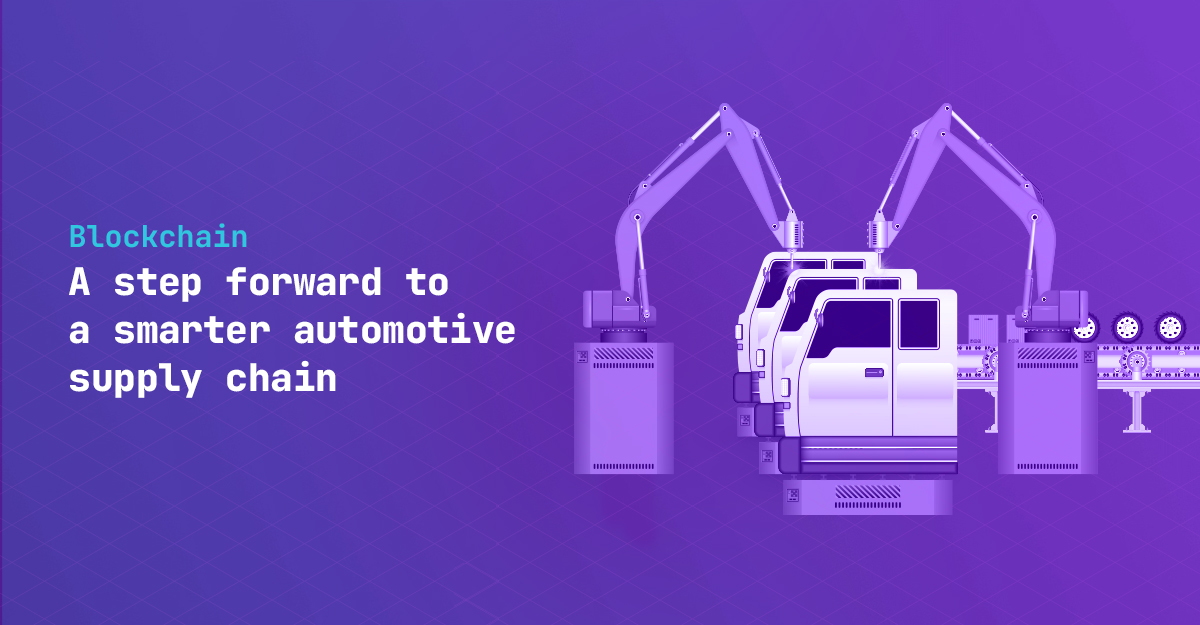Explore how blockchain technology is revolutionizing automotive force chains, enhancing translucency, traceability, and effectiveness from manufacturing to distribution.
Preface
Blockchain technology, famed for its secure and transparent nature, is making significant strides in revolutionizing automotive force chains. In this composition, we claw into the transformative impact of blockchain, its operations in enhancing translucency, traceability, and effectiveness across automotive manufacturing and distribution processes.
What’s Blockchain Technology?
Blockchain is a decentralized digital tally that records deals across multiple computers in a secure and inflexible manner. Each sale, or block, is linked to the former one, forming a chain of blocks, hence the name blockchain. This technology ensures translucency, enhances security, and eliminates the need for interposers in vindicating deals.
operations of Blockchain in Automotive Supply Chains
1. Force chain translucency
Blockchain provides unequaled translucency by enabling real- time shadowing and monitoring of every element and product within the force chain. Automakers and suppliers can trace the origin, authenticity, and trip of corridor, icing compliance with quality norms and nonsupervisory conditions.
2. Enhanced Data Integrity
inflexible records on the blockchain insure the integrity and authenticity of data throughout the force chain. This prevents tampering, fraud, and unauthorized changes to information related to corridor procurement, manufacturing processes, and vehicle assembly.
Perfecting Supply Chain Efficiency
1. Streamlined Procurement Processes
Blockchain automates procurement processes by enabling smart contracts — tone- executing agreements that automatically spark conduct when predefined conditions are met. Smart contracts grease flawless ordering, invoicing, and payment processes between automotive manufacturers and suppliers, reducing detainments and crimes.
2. Inventory Management and Logistics
Real- time visibility handed by blockchain enhances force operation and logistics optimization. Automakers can cover force situations, track shipments, and manage distribution networks more efficiently, minimizing detainments and perfecting overall force chain responsiveness.
icing Quality and Compliance
1. Quality Assurance and Recall Management
Blockchain enables visionary quality assurance by maintaining a transparent record of element origins, manufacturing processes, and quality control measures. In case of blights or recalls, automakers can fleetly trace affected corridor, notify stakeholders, and apply corrective conduct to insure vehicle safety and compliance.
2. Regulatory Compliance
Automotive force chains are subject to strict nonsupervisory conditions, similar as environmental norms and safety regulations. Blockchain facilitates compliance by furnishing auditable records and instruments, demonstrating adherence to nonsupervisory fabrics throughout the force chain lifecycle.
Challenges and Considerations
1. Integration with Being Systems
Integrating blockchain with being IT structure and heritage systems poses technological challenges and requires careful planning to insure comity and data interoperability.
2. Data sequestration and Security
While blockchain enhances data security through encryption and decentralized storehouse, guarding sensitive information and icing compliance with data sequestration regulations remain critical enterprises for automotive stakeholders.
unborn Directions and inventions
1. Blockchain in Autonomous Vehicles
As independent vehicles evolve, blockchain can play a vital part in icing secure communication, vindicating software updates, and managing data sharing between vehicles, structure, and stakeholders.
2. Assiduity Collaboration and norms
Collaboration among automakers, suppliers, and technology providers is essential to establish assiduity-wide blockchain norms and interoperable platforms. Standardization facilitates flawless data exchange, enhances trust, and accelerates blockchain relinquishment across the automotive ecosystem.
FAQs
1 How does blockchain benefit automotive manufacturers and suppliers?
– Blockchain enhances translucency, improves force chain effectiveness, ensures data integrity, and supports compliance with nonsupervisory conditions, serving both manufacturers and suppliers.
2 Can blockchain help fake corridor in automotive force chains?
– yea, blockchain enables traceability and authenticity verification of corridor throughout the force chain, reducing the threat of fake products entering the request.
3 Is blockchain scalable for large- scale automotive force chains?
– Advancements in blockchain technology, similar as scalability results and agreement mechanisms, are addressing scalability issues to support large- scale operations in automotive force chains.
4 How can blockchain ameliorate sustainability in automotive manufacturing?
– By enhancing translucency and traceability, blockchain enables automakers to cover and optimize resource operation, reduce waste, and misbehave with environmental norms, contributing to sustainable practices.
5 What part does blockchain play in electric vehicle( EV) force chains?
– Blockchain can track the sourcing of critical accoutrements used in EV batteries, corroborate their ethical and environmental credentials, and support recycling enterprise, promoting sustainability in EV force chains.
Conclusion
Blockchain technology is reshaping automotive force chains by fostering translucency, enhancing effectiveness, and icing compliance across manufacturing, distribution, and aftermarket operations. As automakers embrace blockchain’s transformative eventuality, they unleash new openings for invention, collaboration, and sustainability in the dynamic automotive assiduity. Embrace the future as blockchain continues to revise how vehicles are sourced, assembled, and delivered, paving the way for a more connected and flexible automotive ecosystem.
